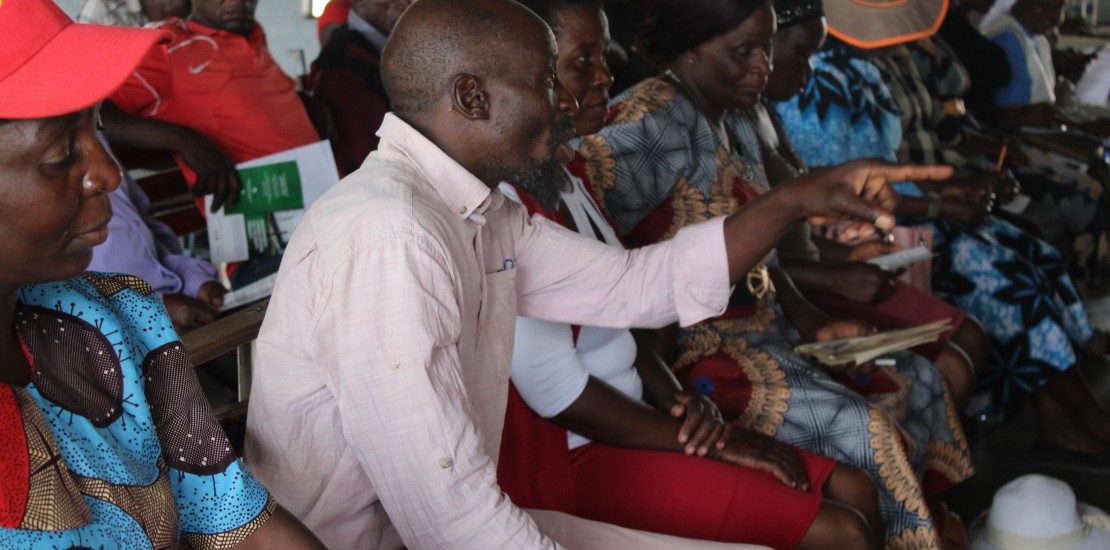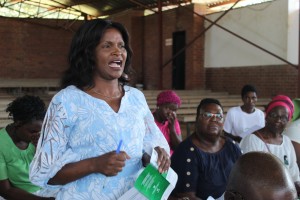- April 28, 2023
- Posted by: Clever K Mlambo
- Category: News

Zimbabwe has not had any executions since 2005, the nation has been on a de facto moratorium on executions for 18 years. Through the Ministry of Justice, Legal and Parliamentary Affairs (MoJLPA), the government embarked on a nationwide grassroots consultation programme where the MoJLPA sought to hear people’s views regarding the death penalty.
With support from the Centre for Applied Legal Research (CALR) and the Switzerland Embassy to Malawi, Zambia and Zimbabwe, the MoJLPA held consultations from 27 March 2023 up to 6 April 2023.
The Ministry of Justice consulted ordinary people from as far as Victoria Falls, Lupane, Guruve, Murehwa, Matobo, Khami, Chiredzi, Chipinge, Gwanda, Beitbridge and many other areas.
Information, Education and Communication material (IEC) in all the major languages was provided by the Ministry of Justice and distributed to the people through MoJLPA partners and other government ministries and departments. The IEC material unpacked the death penalty as couched in Zimbabwe’s statutes, the objectives of the consultations and why Zimbabwe is holding these national consultations. The IEC material was provided in both vernacular languages, Shona and Ndebele and also in English, which enabled the people to read the material in languages they understand and comprehend.

Mixed reactions from the people were on show as some opposed the death penalty whilst others were in favour of upholding of the death penalty.
A resident of Ngezi, during the Ngezi consultations, believed that the death penalty ran parallel with Zimbabwe’s traditional way of justice. He said that it was a system brought about by the colonisers where the law was used for political persecution. For him, he prefers a reconciliatory justice system as was back in the day. Traditionally, if someone committed murder, they were supposed to appease the victim’s family, kuripa ngozi in Shona. The resident called on for the MoJLPA to look for other alternative systems like life imprisonment than carrying out the death penalty.
This view of abolishing the death penalty was also shared by a Salvation Army pastor, Major E. Zinyowo in Victoria Falls, who held as follows;
“… in Christianity, everyone is a relative, if my relative is killed my reaction will be based on Christian values, knowing that revenge is not to be meted by us but by the Creator, … we should not revenge and the death penalty is not right”
Others weighed in using constitutional provisions on the sanctity of life, where everyone has a right to life asserting that;
“ I want a Zimbabwean society that is able to forgive, a community that is able to build peace, the government needs to invest more in correctional services so that we have facilities that change our environment from crime prone to a crime-free society, I wish for the reformation of an offender wherein he has an opportunity to return to the society, reintegrating with the society … let us punish him for the wrong he has done but let us not kill him ..” said Harrison Ndipike, a resident based in Lupane.
“… a culture of killing each other is bad, we need to look for other peace-building initiatives,” further elaborated Harrison.
A number of abolitionists made their voices heard and they advocated for the death penalty to be scrapped from Zimbabwe’s laws.
“… the death penalty should be abolished, it is very dehumanizing, it’s against the values of human dignity and the conditions of the death row are so punitive, an alternative for the death penalty will be life imprisonment without possibility of amnesty … we should abolish the death penalty …” said Kudakwashe Shambare, a Gweru resident.
He shared his sentiments regarding the death penalty and wants it scrapped as it is dehumanizing and the whole process is harsh and punitive.
Further, a resident from Karoi, Faston Mangezi who is also against the death penalty, fears there may be wrong convictions and they will not be any reversal. In driving his point, he reflected on Mbuya Nehanda’s case and how she was hanged though now we can acknowledge that she was innocent and that she was fighting for a just and worthy cause.
Retentionist also aired their views regarding the death penalty. For them, they wanted the law to be upheld and administered as they view it as a deterrent measure to murder cases.
In Gokwe, Linah Matendoni wanted the death penalty to be upheld. “… the death penalty deters crimes such as murders and other gruesome crimes … upholding the death penalty deters crime, my view is that the death penalty must be thoroughly enforced,” said Linah.
Her view ran contrary to another Gokwe resident, Farai Kakova who doesn’t see the death penalty as a deterrent measure. For him, the death penalty does nothing in helping the victims’ families and in deterring future murders.
“Let us remove the death penalty, it does not change anything … carrying out the death penalty acts like revenge, it is better to have life imprisonment as an alternative,” said Farai Kakova.
An indigenous church leader in Gokwe wants the government to uphold and effectively use the death penalty. For him, the death penalty restores law and order and deters crimes.
“The death penalty law must be enforced, in the scriptures it is said that a person who kills must be killed, I, therefore, support this law,” said Gilbert Moyo, an indigenous church leader who is based in Gokwe.
Speaking on the sidelines of the Gwanda grassroots consultations in Beitbridge on 4 May 2023, Mrs Nestai Zvakasikwa who is the Director for the Law Development Commission (LDC) said that currently there is a moratorium on executions and not on the sentencing of convicts to the death penalty. She also said that the Ministry of Justice is addressing Zimbabweans to hear their views regarding the death penalty, and the ministry is taking note of people’s views on whether to retain the death penalty or abolish it.
Further, speaking with the media on the sidelines of the Beitbridge consultations on 4 May 2023, Nestai Zvakasikwa stated that the ministry is not carrying any position but coming to the people to hear and note their views.
The Ministry of Justice will compile a report based on all the responses it got across the country. The grassroots consultations are part of a process that will inform Zimbabwe to come up with a position on the death penalty.
